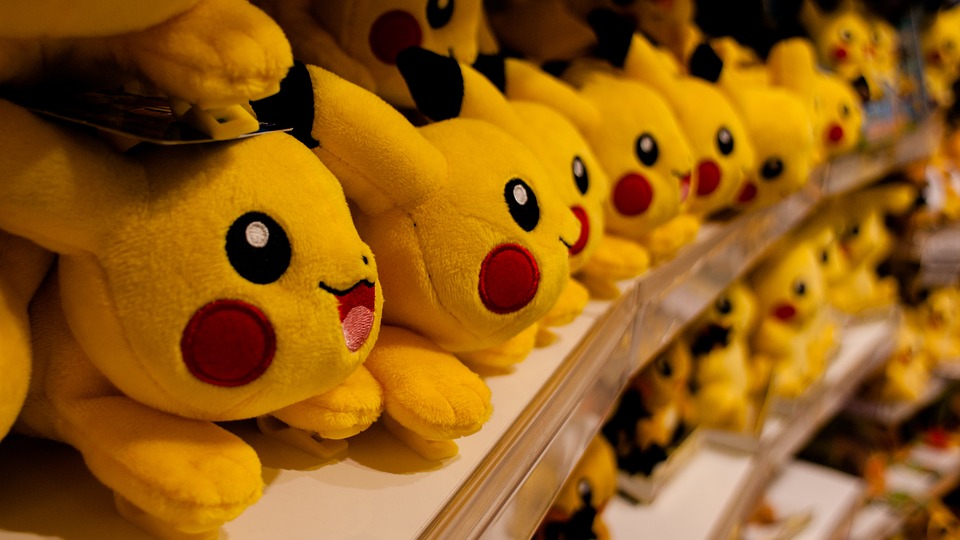A few weeks ago, my co-editor and I engaged in a debate which transcended nation, belief and politics: the merits (or otherwise) of Pokemon Go. The article prompted a furore amongst the Pokemon community, splitting traditionalists from rebellious, open-minded reformers, almost bringing battles out of the gym and into the open. In the wake of this divisive response, I was fortunate enough to interview someone whose name is whispered in awe amongst Pokemon circles: Jonathan Evans.
Jonathan is a Maths/Phil student at LMH. And whilst Andrew Triggs-Hodge and Constantin Louloudis fought battle for Oxonian gold in Rio, a prize of equal, nay, surpassing stature was being sought in the sumptuous setting of the San Francisco Marriott Marquis Hotel. Olympic Village eat your heart out. Yes, this was the Pokemon VGC World Final, and through the ranks our young hero had climbed, defeating opponent after opponent till the day of the final was reached. Though the eventual victory was not to be his (losing by the slightest of margins to Wolfe Glick), the tenacity and guile he demonstrated in his matches reveal a player of only the highest calibre.
This calibre was forged at a young age. As he explains, “I’ve been playing Pokemon since I was a kid. I played every single generation.” Battling with his older brother, he quickly outstripped his peers in acumen, till eventually, as he is quick to remind me, “if I was to play competitive Pokemon with someone who’d never played it competitively before, they’d get trashed.” This is tough talk, but as he explains the details of playing competitively, I realise that it is by no means empty: unlike normal Pokemon, “you’re playing a double battle, choosing four Pokemon from a team of six.” He glibly notes, “It’s rough.”
But it’s the two comparisons he draws that interest me the most: “It’s like poker – you make moves at the same time with imperfect knowledge of the situation. And it’s like chess – you try and have a slight advantage at the end of the game.” Or, at least, this was how he played the game – to the margins, taking slight advantages and playing till the timer was up – a strategy that only works (and which he played to near perfection throughout his time in San Francisco), he claims, if you’re “thinking three or four turns ahead of your opponent.” This is risky, edge-of-seat stuff, he implies – but stuff that an audience could enjoy just as much as the players.
And, of course, this is where Pokemon differs from other ‘E-Sports’: it doesn’t have the same fanbase as traditional, action-oriented online games do, action which I imagine – not being a gamer myself – possesses some appeal. Whilst this doesn’t affect Jonathan’s choice to play the game, “I love it regardless,” he reminds me, it does give slight cause for frustration: “I just wish more people would watch Worlds.” And this is where Pokemon Go enters the fray. “I was so happy when it came out – I saw everyone playing and I was like this is what I want for the world.” High praise indeed for Niantic’s effort… but he doesn’t stop there. “I hate it now, I hate it so much. I’m so annoyed that the gameplay’s so bad.” His main criticism is of the uncreative gym battles, seeing it as less of a game than a nostalgia trip for millenials. He does have some hope, however, admitting “yeah I see a future in it, if they improve the player interaction element, it could be great.”
Though couched in some pretty sanitary language, Jonathan’s hope is pretty emblematic of the power of Pokemon and in particular of Pokemon Go: it is a social game, which brings people together in a way like no other. As he puts it, “The social element is what keeps people coming back. Everyone really likes the people they play it with.”
Jonathan later told me that the reason he applied here to Oxford is because of the encouragement of a friend – who graduated last year – whom he met playing Pokemon. I’m not a gamer, and I don’t think I ever really will be, but this kind of story – of a game bringing people together – is not one that should be laughed off as a simple fad. So, when I said at the beginning that Pokemon was transcendent, I really (almost) meant it, after a fashion at least: maybe I should pick up my old Pokemon cards (at least a decade untouched) and give the game a fresh look, though I doubt I’ll be as avid a fan as Jonathan.



